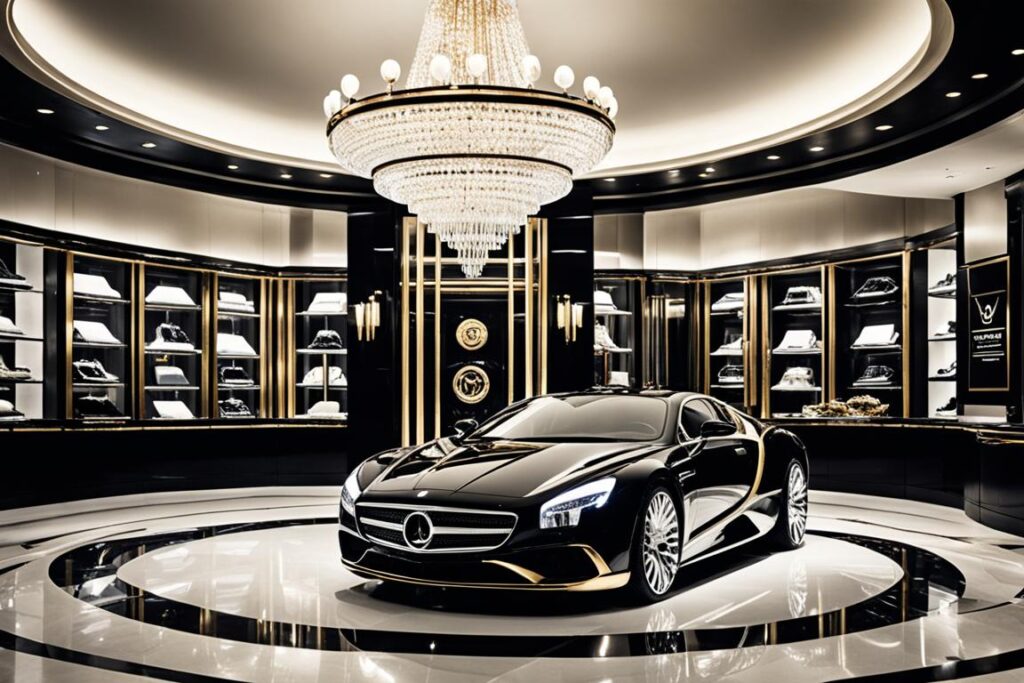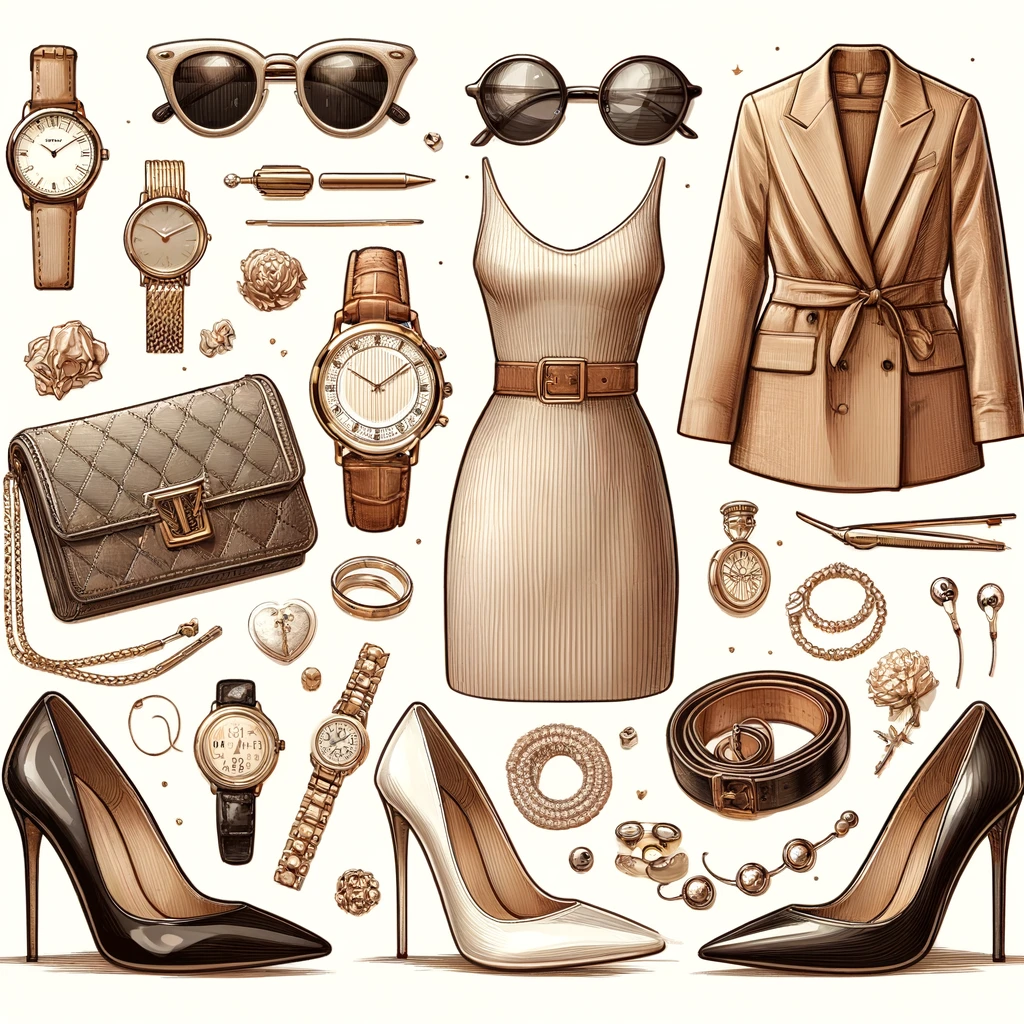Welcome to the fascinating realm of luxury brands and experiences, where opulence meets exclusivity and premium quality reigns supreme. In a world where high-end and exclusive products command attention, luxury brands are constantly evolving to cater to the desires of discerning consumers. From designer goods to a luxury lifestyle, this captivating industry offers a range of affluent goods and elite offerings that resonate with those seeking the finer things in life.
The luxury market is in the midst of a transformation, driven by consumer demands for unique and immersive experiences. To thrive in this competitive landscape, luxury brands must go beyond simply offering coveted products—they must create human experiences that forge deep connections with their audience. This means invoking a sense of scarcity, showcasing apparent status, and celebrating the artistry and craftsmanship that goes into creating their offerings.
Digital technologies also play a vital role in delivering exceptional consumer experiences. Luxury brands are investing in online platforms and immersive digital content to engage with their audience in innovative ways. By striking the right balance between online and offline experiences, these brands differentiate themselves and entice new audiences into their world of luxury.
Join us as we delve deeper into the realm of luxury, exploring the distinction between luxury and ultra-luxury brands, the emergence of new players in the ultra-luxury market, and the art of luxury service.
Key Takeaways:
- Luxury brands are adapting to meet the demands of consumers for unique and immersive experiences
- The luxury market emphasizes high-end, exclusive products and a premium lifestyle
- Digital technologies are essential for delivering exceptional experiences and engaging with new audiences
- There is a distinction between luxury brands and ultra-luxury brands, with the latter offering exclusive experiences at a higher price point
- Luxury and ultra-luxury brands cater to the desires of affluent individuals seeking a sense of opulence and exclusivity
Luxury vs Ultra-Luxury Brands
In the world of luxury, brands are distinguished by their exceptional quality, design, and craftsmanship. Luxury brands cater to a broader audience and offer high-quality products at a more accessible price point, while still embodying the essence of luxury. These brands are renowned for their attention to detail, superior materials, and impeccable finishes. Examples of such luxury brands include Gucci and Louis Vuitton, which have built a strong reputation for their exquisite products.
On the other hand, ultra-luxury brands take luxury to a whole new level. They are characterized by their exclusivity, exceptional quality, and higher price tags. These brands offer the ultimate expression of luxury, often with products and experiences that are one-of-a-kind or limited in production. Ultra-luxury brands create a sense of exclusivity and opulence that goes beyond what traditional luxury brands provide. Chanel and Hermes are iconic examples of ultra-luxury brands, known for their exceptional craftsmanship and timeless elegance.
To better understand the differences between luxury and ultra-luxury brands, let’s take a closer look at some key factors:
Exclusivity
While luxury brands are accessible to a wider audience, ultra-luxury brands prioritize exclusivity. They create limited editions and rare pieces that appeal to a niche market of discerning customers who seek the most unique and extraordinary offerings. This exclusivity adds to the allure and desirability surrounding ultra-luxury brands, making their products and experiences highly coveted status symbols.
Exceptional Quality
Both luxury and ultra-luxury brands uphold the highest standards of quality. However, ultra-luxury brands take it a step further by pushing the boundaries of craftsmanship and using only the finest materials. Each piece is meticulously crafted by skilled artisans, ensuring unmatched quality and attention to detail. This uncompromising commitment to exceptional quality is what sets ultra-luxury brands apart from their luxury counterparts.
The Ultimate Luxury Experience
Ultra-luxury brands offer more than just products; they create extraordinary experiences. From bespoke tailoring services to personalized customer experiences, ultra-luxury brands cater to the unique desires and preferences of their elite clientele. They provide a level of service and attention that goes beyond expectations, elevating the luxury experience to new heights.
As the demand for luxury continues to evolve, both luxury and ultra-luxury brands play important roles in shaping the industry. While luxury brands offer high-quality products accessible to a wider audience, ultra-luxury brands go above and beyond to provide the epitome of exclusivity, exceptional quality, and unparalleled luxury experiences.
The Emergence of Ultra-Luxury Brands
The demand for ultra-luxury experiences has witnessed a remarkable surge in recent years, propelled by the increasing wealth of the global population. As more individuals amass substantial fortunes, they seek out bespoke and exclusive experiences that reflect their elevated status and ambitious aspirations. In response, ultra-luxury brands have seized this opportunity to redefine and expand the boundaries of traditional luxury.
Ultra-luxury brands now go beyond the conventional definition of luxury, offering products and experiences that epitomize opulence and exclusivity. These brands hone in on providing personalized and unique encounters, tailoring their offerings to suit the individual preferences and desires of their discerning clientele. By doing so, they create an intimate connection that resonates deeply with their customers, forging unforgettable memories that distinguish their brand from all others.
This shifting consumer behavior has paved the way for a flourishing market of ultra-luxury brands. As the desire for prestige and distinction grows, these brands rise to the occasion, crafting exceptional products and curating unparalleled experiences that cater to the ever-evolving tastes of their affluent client base.
In summary, the rapid emergence of ultra-luxury brands can be attributed to the increasing wealth of individuals globally and the changing definition of luxury. With an emphasis on personalization, exclusivity, and extraordinary experiences, these brands have successfully captivated the hearts and minds of high net worth individuals, shaping the landscape of luxury as we know it.
| Key Factors | Definition | Impact |
|---|---|---|
| Increasing Wealth | The rise in global wealth contributes to the growth of ultra-luxury brands | Expanded market for bespoke and exclusive products |
| Changing Definition of Luxury | Consumers seek personalized and unique experiences | Elevated demand for tailored offerings and opulent encounters |
Conclusion
When it comes to luxury, it’s all about the experience. Luxury service is the key differentiator that sets brands apart in the competitive world of high-end offerings. With a meticulous attention to detail, a focus on exclusivity, and a commitment to personalization, luxury brands create magical and subtle experiences that cater to the desires and needs of their discerning customers.
What sets luxury service apart is the ability to deliver unique sensory experiences, offering a pinnacle of comfort and elegance without arrogance. It’s about going the extra mile to understand the individual preferences, tastes, and aspirations of customers, and crafting bespoke services that exceed their expectations.
To achieve excellence in luxury service, brands must embody a comprehensive understanding of their own values and ethos. Thorough market research is essential to identify and anticipate the needs and desires of their target audience. A relentless focus on quality ensures that every touchpoint, from product to service, meets the highest standards. And above all, a deep respect for the customer underpins every interaction, creating a bond of trust and loyalty.
By providing exceptional luxury service, brands create a truly memorable and distinguished experience for their customers. In a world where luxury is defined by service as much as by product, the ability to deliver personalized, exclusive, and high-quality experiences is what sets the best luxury brands apart from the rest.
Some of Luxury brands are Chanel, LOUIS VUITTON, GUCCI, PRADA, DIOR.



